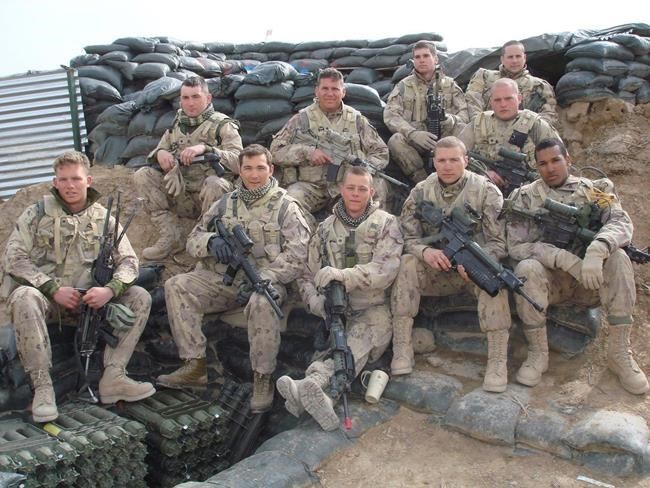HALIFAX — An internal review of how Veterans Affairs handled the tragic case of a former soldier who killed his family and himself in 2017 says changes must be made to prevent other veterans from experiencing the delays in service that Lionel Desmond faced.
The undated review, which the department tried to keep secret, was recently submitted to a provincial fatality inquiry in Nova Scotia, which heard testimony this week from the Veterans Affairs case manager who worked with the Afghanistan war veteran during the 14 months prior to the killings.
Among other things, the six-page document says the department's "opportunities for improvement" include reducing the amount of time it takes for veterans to be assigned a case manager once they are released from the military.
"The length of time to have a case mamager in place is a factor to success and rehabilitation of the client," the review says. "It is noted that the hiring and retention process is now underway, which could improve the turnaround times noted in the file."
In Desmond's case, it took the department six months to appoint Marie-Paule Doucette to the job, a time lag that prompted many questions from lawyers taking part in the inquiry in Port Hawkesbury, N.S.
The inquiry, which started hearings in January 2020, is investigating the circumstances surrounding the deaths of Desmond, his wife Shanna, their 10-year-old daughter Aaliyah and Desmond's 52-year-old mother Brenda on Jan 3, 2017.
The hearings, which will draw to a close this fall, have examined whether Desmond had access to mental health and domestic violence services, and whether he should have been able to buy a rifle. Inquiry lawyers also investigated whether the healthcare and social services providers he dealt with were trained to recognize operational stress injuries or domestic violence.
During Doucette's testimony on Wednesday, she blamed the delay of her appointment on a lack of resources, which she said was caused by budget cutbacks imposed in 2012 by the former Conservative government.
Doucette went on to say her work with Desmond was sometimes frustrated by "bureaucratic barriers," including cumbersome requirements for documentation and training.
The review provides a brief synopsis of the interactions between the department and Desmond, starting on May 25, 2015, when he was preparing to be medically released from the army. At the time, he was still struggling with major depression and post-traumatic stress disorder after he served as an infantryman in Afghanistan in 2007. He was diagnosed with the conditions in 2011.
The files show that by Oct. 31, 2015 — more than three months after his discharge — Desmond called the department to say he needed a case manager to help him with his transition to civilian life because he was having "difficulty adjusting."
Doucette, who had just started her job at Veterans Affairs, was handed Desmond's file the following month and she produced a client assessment and case plan by January of 2016. She noted that her client had difficulty controlling his emotions and suffered from anxiety, angry outbursts, panic attacks and marital conflict.
The review of Doucette's work includes several other recommendations, including calls for more consultations among departmental staff and improvements to file handling, training and suicide prevention protocols.
The report also calls for regular file reviews to ensure medical recommendations are taken into consideration.
After Desmond attended an intensive, 11-week residential treatment program in Montreal in the summer of 2016, staff at Ste. Anne's Hospital produced a long list of recommendations to help the deeply troubled veteran.
The inquiry heard that by the time Desmond had fatally shot his family members, only two of those recommendations — the need for psychotherapy and a clinical care manager — were just getting started.
More importantly, the inquiry learned that Desmond received no therapeutic care during the four months after he left the hospital, a gap that prompted one Nova Scotia psychiatrist to file a report saying the former corporal was "falling through the cracks" of the system.
This report by The Canadian Press was first published June 24, 2021.
Michael MacDonald, The Canadian Press



